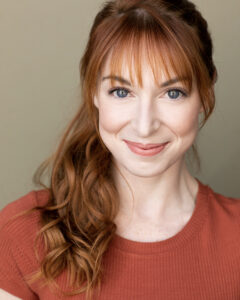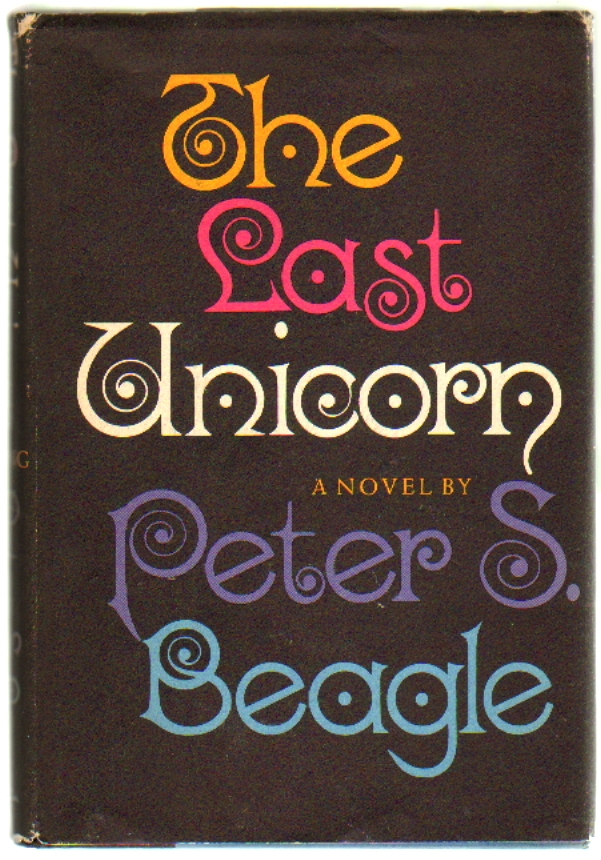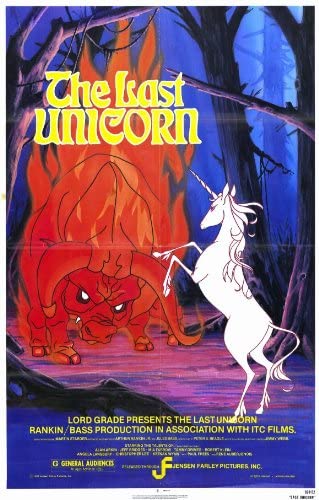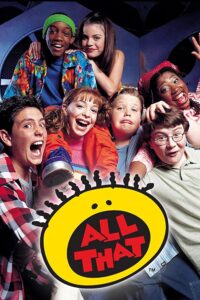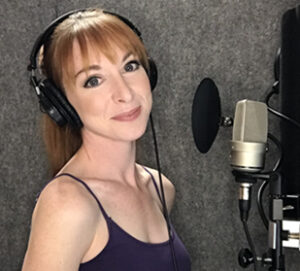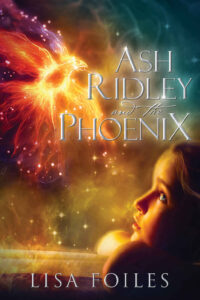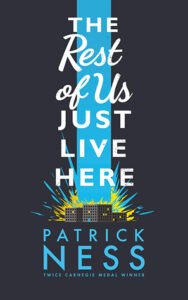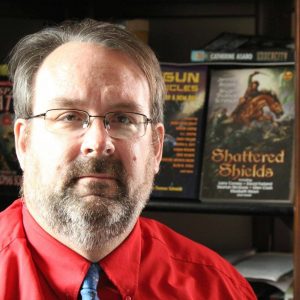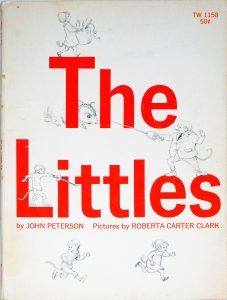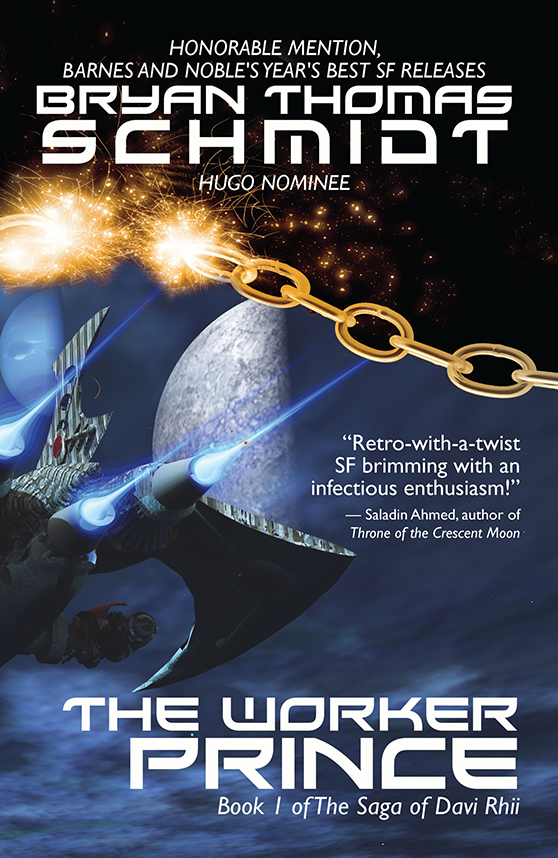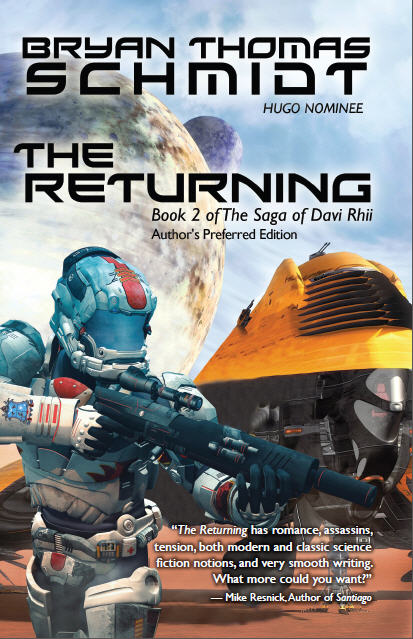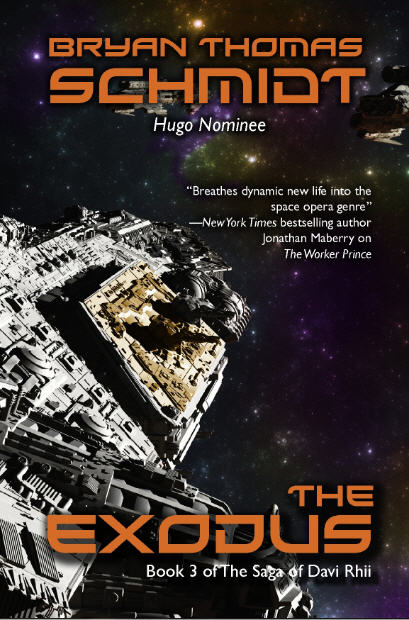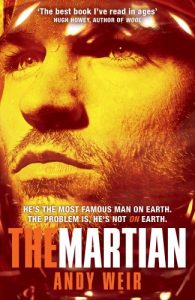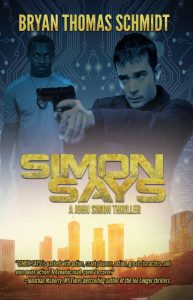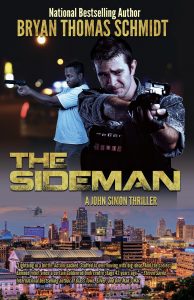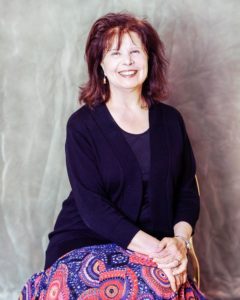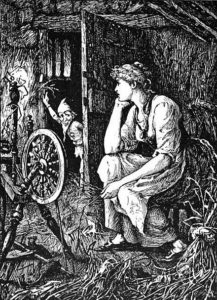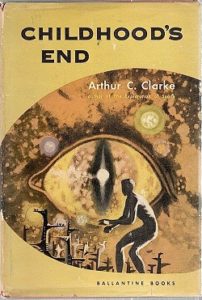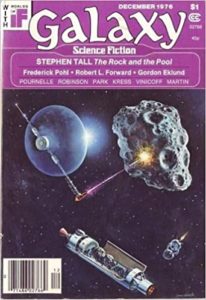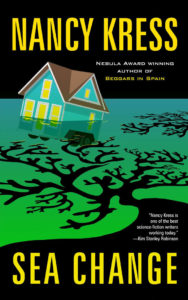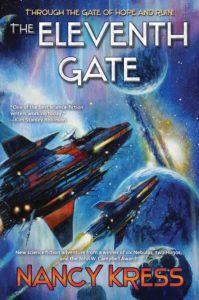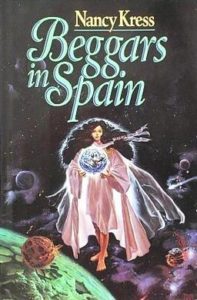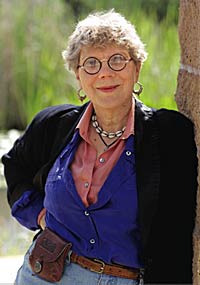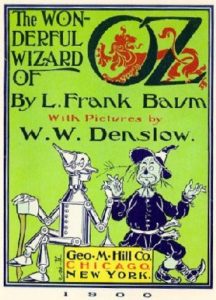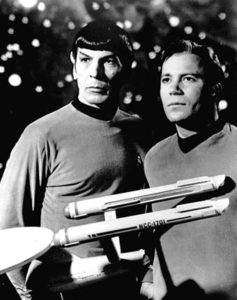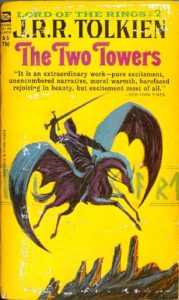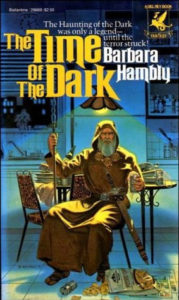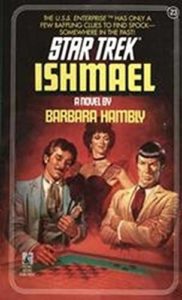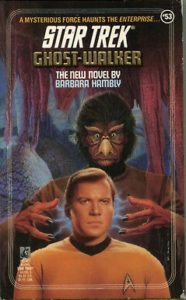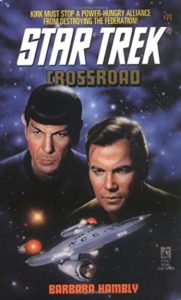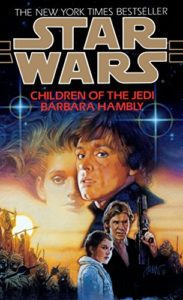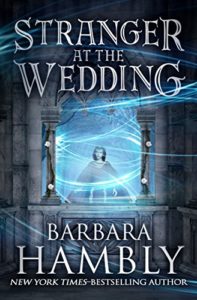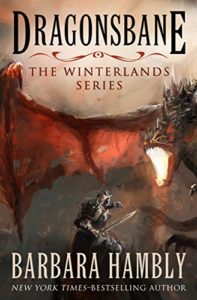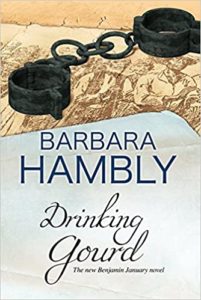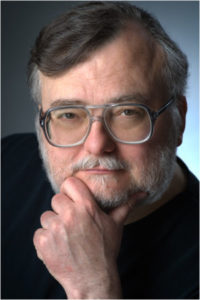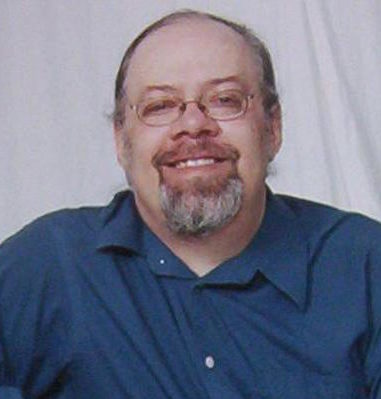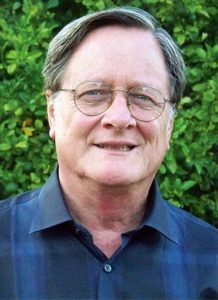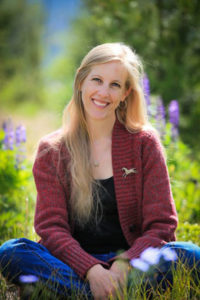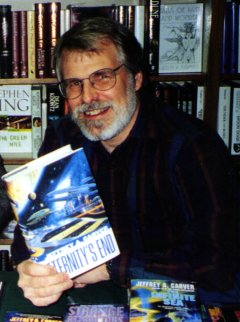Podcast: Play in new window | Download | Embed
Subscribe: Apple Podcasts | Spotify | Amazon Music | Email | TuneIn | RSS | More
An hour-long conversation with Adria Laycraft, author of Jumpship Hope (Tyche Books), freelance editor, and wood artisan, an Odyssey Writers Workshop alumna whose short stories have appeared in various magazines and anthologies, both online and in print.
Website
adrialaycraft.com
Facebook
@adria.laycraft
YouTube
Carving the Cottonwood
Girl Gone to Ground
The Introduction
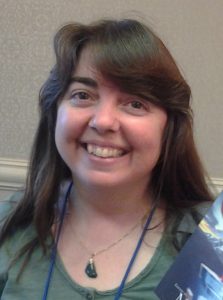
Adria Laycraft is an author, freelance editor of fiction, and wood artisan who earned honours in journalism in 1992 and has always worked with words and visual arts. She coedited The Urban Green Man Anthology in 2013, which was nominated for an Aurora Award, and launched her debut novel, Jumpship Hope,, in 2019. Her short stories have appeared in various magazines and anthologies, both online and in print. Adria is a grateful member of Calgary’s Imaginative Fiction Writers Association, and a proud survivor of the Odyssey Writers Workshop. She also has two YouTube channels, Carving the Cottonwood and Girl Gone to Ground.
The (Lightly Edited) Transcript
Adria, welcome to The Worldshapers.
Thank you, Ed. It’s wonderful to be here.
Now, I say I feel like I’m kind of an honorary member of the IFWA, because we’ve known each other for a long time through conventions in Calgary, and so, although I’ve never, you know, really been a member of the organization, I’ve been part of the Writers at the Improv that that group does every year, for many, many years now.
That is so much fun, Writers at the Improv.
I’ve done it a couple of times as a program. In fact, I did it when I was writer-in-residence at the Regina Public Library, and I did it again this year at the Saskatoon Public Library. Except I didn’t really have anybody show…it was just before everything closed down and I think people were a little iffy. All I had was an English As a Second Language class, and none of them wanted to compete. So what I did was, I just took words from them…because for those…I guess I should explain…Writers at the Improv is like any improv, you get words in the audience and you write a story using those words. I wrote a story on the words that they gave me. So that was kind of fun for me. It wasn’t quite the usual kind of a process, though. But anyway, enough about me. You’re actually here to talk about you. So, we have known each other a long time and you’ve been a writer all that time that I’ve known you. So, let’s take you back into the mists of time, as I like to say. How did you get interested…well, first of all, in science fiction and fantasy…and in writing? Which came first, or how did those two things come together for you?
Well, I can…of course, that’s why my phone rings…I have definitely been a reader and a fan of science fiction and fantasy since before I could even read. According to my mom, I demanded to be taught how to read before kindergarten because I was tired of waiting for people to have time to read to me. So, I’ve always been a reader. I read The Lord of the Rings at age eight for the first time. And I reread it several times, and launched me into reading Heinlein and stuff that I just hadn’t even thought I was old enough for yet. But always, always been a very avid reader. And then, somewhere along the way, when I realized I had to have a job in the big wide world, I realized that that writing the books that I loved so much could be a thing.
Well, you studied…well, first of all, you grew up in Calgary, I presume, or is that correct?
Northern Alberta.
Northern Alberta. So when you went to…when you were in school, did you start writing stories and sharing them with your friends and that sort of thing?
Yeah, and I was attempting to write novels at that point. I was still uncertain about short fiction, but I was always a book lover and I was attempting to write at that time. But being a sensible girl raised by sensible parents, I thought that I should go to journalism school and get a job that I could write for a living and maybe get a paycheque.
Yes, and that’s exactly what I did, because in high school I wrote novels and short stories and I knew I wanted to be a writer. And then I looked at it and I said, “Well, you can’t make a living as a writer,” and I went into journalism for that very reason, so I’d be doing something where I would be I would be writing. And, you know, it wasn’t what I wanted to write necessarily, but I thought it’d be useful. So, did you find that useful, your journalism training, and then the work you did there? Did that help with the fiction writing later on?
I got told several times, both in photojournalism and in the writing classes, that I was on the wrong side of the tracks. So, anyone from Calgary knows that SATE is on one side of the C-train tracks and the art school, ACAD, is on the other side of the tracks. And so, I actually had a couple of instructors tell me, “You’re on the wrong side of the tracks. You should be in art school.” And, of course, I fought that and graduated with honors and worked as a freelancer. I’ve been published in several magazines and newspapers, especially around Alberta. But it didn’t take me very many years before I realized that there might possibly be more truth in the fiction I wrote than in the journalism, and I decided that it was time to step away from that and focus more on the fiction, which is where my heart was.
I still find…and, yeah, I was kind of there, I mean, I, I did journalism and I, you know, for eight years I worked for a newspaper as a reporter and then as editor of the newspaper, and then I was a communications officer for the Saskatchewan Science Centre. All that time I was writing fiction, but I did find that the mere act of having to put words on paper is helpful, no matter what kind of writing you’re doing, that the discipline of writing helps you write. Did you find that, as well, that there was some benefit in all that nonfiction when you got around to focusing on fiction?
Sure. Definitely. And just even, as you say, words on the paper, but even the act of it, the physical act of putting words on the paper, the more you do it, the easier it gets to get started. And that seems to always be the hang-up for everyone, is getting started.
Well, I often say that as a newspaper reporter, you don’t have the luxury of not writing because the newspaper is going to come out and there have to be words in it to go around the advertising. So, you have to provide those words. So, I did find it a very useful side of writing. But all that time I was writing fiction. Were you writing fiction even while you were working mostly as a non-fiction freelancer?
I was, sporadically. I also spent several years chasing wildlife photography and sold a bunch of pictures to magazines and postcards and calendar companies and all kinds of neat things, back in the day where you still had to mail the slides physically to the company. And so, I was writing and always reading, but it was a little sporadic. I chased a lot of other interesting things. And I think that just lends itself to good fiction, too.
Well, you have to have something in the tank that you turn into words about other things, I think. And that’s another thing that I found writing nonfiction is that, you know, it broadens your horizons a little bit from focusing just on the stuff that you make up. It exposes you to other things. So when did…
Kind of like reading outside your genre will sometimes open your mind up to things you wouldn’t have thought of otherwise.
Yeah. Well, you did mention the imaginative Fiction Writers Association. When did you become involved with that excellent writing group?
Oh, I became a member…I believe it was ’96, or ’97. And my very first ever short story critique was performed by Randy and someone else who I don’t remember anymore.
That would be Randy McCharles.
Randy McCharles, our intrepid leader with When Words Collide.
How was that for you, the critique process?
That very first one? I mean, I was just in my mid-20s, it was the first time I attempted short fiction, I hadn’t even really read anything. The story was atrocious, and Randy did his best to tell me so in the kindest way. But it was quite an experience. And it was…it brought me back actually to the journalism-school days when, you know, you would have to write and write and write your assignments and then have them trashed. But it was very eye-opening and I learned a lot. And IFWA has, through the years, brought me so much, just…it’s hard to even express my gratitude because it’s so big.
Well, it’s good to hear because, you know, I’ve talked to a lot of authors and I always ask about their formal training, and that was, in your case, the journalism, but also if you can find a good writers group. And some of us have never had a handy writers’ group. And then there’s people who’ve been in writer’s groups, but they were not helpful. So it’s nice to know that there’s one out there that really works.
And IFWA has had its ups and downs, I mean, we became so big that the only way to be helpful and manage the numbers was to have splinter groups. And I was involved in one of those–well, a few of those splinter groups–but one in particular that went on for several years. And that kind of small focus can…that’s where you really get your value, is if you can find just a…usually between six or 10 people seems to be ideal…and you share work amongst you and you focus on one person’s work at a time. And, oh, my goodness, you can make leaps and bounds of progress that you just simply wouldn’t have been able to without them.
So when did you start selling short fiction?
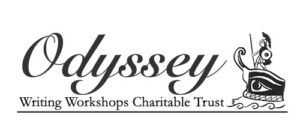
That would be after attending the Odyssey Writing Workshop out in New Hampshire. Odyssey, we used to jokingly say, is a lot like Survivor because it is six weeks long. But we used to joke that it’s like Survivor, but you can’t vote anyone out. And it’s 16 students that critique each other and take courses and classes and workshops and do assignments for six weeks. It’s an MFA-equivalent course that’s crammed into a very short amount of time and it’s very intense. Because of that, the requirements for that course, I had to really get into short fiction a lot more than I ever had before. Even though I was a member of IFWA coming up to that time, Odyssey was what really got me looking at short fiction, reading it, writing it, really exploring it. And it was just shortly after that. So, my roommate got her first short story sale while we’re there. And then I got my first one shortly after, and it was written while I was at Odyssey.
When was that first one and what was it?
So let’s see. That was 2006. Oh, my goodness, I can remember the story, ‘course the title runs right out of my head. And it was published in a little online journal. It was a Christian journal, I believe. Just a small thing. But, of course, being the first one, I was really excited.
Yes, it’s…I was in…where was I? I was in Zurich, of all places, on a choir tour with my university choir, which I had gone back to as an alumnus just a few years after I graduated and I got a, you know, a mailgram, because we didn’t have email in those days, an aerogram from my mother telling me that I had sold a short story. So I still remember that very clearly. It wasn’t science fiction, either, that first one. But it was my first short story. So, yeah, you always remember the first one, that’s for sure.
Yeah.
Now though, you have…your first novel has come out. When did you start focusing or thinking about novels, or were there some unpublished ones in there before you published one? How did that work out for you?
There are several unpublished novels in my history. I, like I said earlier, love, love book-length fiction. I love the ability to just really immerse yourself in that world and those characters. And personally, short stories just aren’t long enough to really have the same impact on you. So, yeah, there’re a few novels sitting there that still need to find a home. The interesting thing is, Jumpship Hope began, as well, at Odyssey. We had an assignment to write up a flash piece, which I’d never heard of before. So here I was, already struggling with writing short stories because I wasn’t used to being so brief, and now I had an assignment to write flash fiction, a thousand words or less. And it was to be read out loud in public at a bookstore. It had to be five minutes or less. So that scene was actually inspired by my roommate, she said, “Just take one impactful moment and turn it into a story.” Just one. She said if you try and put too many moments in, then you won’t have flash fiction. So I took an impactful moment and turned it into, you know, threw it onto a spaceship. And, of course, immediately saw everything that led up to that moment and everything that came after it, and I had to write a book.
Well, this seems like a good place to give a synopsis of said book. So…without giving away anything you don’t want to give away...
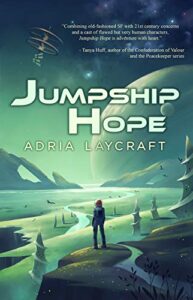
Jumpship Hope is about first contact. And, of course, you know, that wonderful space-opera thing of being able to jump or fold space. And it’s an adventure about, you know, learning what we stand for. And it deals with humanity in a time where Earth has become pretty unlivable, and they’re trying to survive in orbit, on the moon, and on Mars. And things aren’t going so great, of course, because that makes good fiction.
And, you talked a little bit about how it came about, coming out of this this flash fiction. What was the impactful scene that you wrote that then triggered the rest of it? Or will that give something away?
Well, the impactful scene is very much that mirror moment in the middle where our hero, Janlin Kavanaugh, stops being chased and starts chasing. It’s where she puts her foot down and she says, “I’ve had enough and I’m going to make some changes.”
Well, how did you go about planning out the novel? Are you a detailed outliner…are you a pantser or a plotter, is the usual way to say that…?
Right. I’m a bit of a pantser, but I’m a bit of an organized pantser. I like to sail in the first 20, 30 thousand words, just feeling my way around. And then I will start plotting more and making sure that the pieces that I want are in place and in order. And then that gives me more confidence to move forward without running, you know, too many detours. Yeah. That would be it.
So what do you end up with in actual pre-writing, like a 400-page synopsis or a paragraph scribbled on the back of an envelope? What did it look like?
I usually end up with, when I’m still getting that first thirty thousand, then I usually end up with a lot of random scenes from all over the place in a scribbled notebook. And then, that’s when, at that point, I need to step back and say, “What’s important? Where am I going with this?” And that’s when I’ll start planning and I’ll start doing a proper outline. Having learned so much about story structure and fiction elements and plotting, I understand the importance of backing up in that moment and taking a look and making sure that I’m focusing on what I really want to say and not just one thing after another.
Well, other than that impactful scene, what was the impetus for telling this particular story? Where did the, you know, where do you get your ideas? That’s the other cliché we ask. And how does that, you know, this is for Jumpship Hope, but, you know, you’ve written short stories as well. What is your general sort of idea-generating process?
Mm hmm. Usually, there is an endpoint. That’s pretty clear. And it’s all about finding out what happened to end up at that point. Without an endpoint…and I actually read an interesting article not long ago about a triangle setup where, if you understand the inciting incident and you understand your mirror moment in the middle, and you understand the transformation at the end, once you have those three pieces, you can just go ahead and fill in what’s needed to get there to those points. So…I’m sorry, I lost track of the question.
Well, when you’re coming up with the story, how does it start for you? Does it start with like an image or a character or a plot idea or what’s typical for you?
It’s often a scene with the people and the dialogues coming to me. I can hear the characters, I can see the scene, I understand the tone and the emotion that’s taking place. And those scenes are what become this notebook full of scribbled bits and pieces that I then have to string together and bridge with more prose to make it a readable novel.
What’s your actual writing process? Do you write, you know, in long bursts or short bursts or in your office or off in a coffee shop or on a piece of parchment under a tree with a quill pen? How do you write?
Do you know, I really miss coffee shops. I used to write in coffee shops all the time when my kid was little. It was my way of being able to step away from the house, being an at-home mom and a freelancer working from home, right? But these days, I’m usually on the couch with the laptop or the notebook on my knees. I tend to write in spurts, so I’ll do an hour, take a break, another hour, take a break…but I also tend to take a whole day and just focus on the novel and not try to look at other jobs, like the editing jobs that I may be on that day, or that at that time. So I try to just let the book fill my head for that day and then I can maybe set it aside and take a few days to do all the other life-stuff. So it’s kind of…I work in spurts and then I take breaks.
Are you a fast writer or a slow writer?
I’m pretty darn fast. While I was in between the journalism years and getting the novel published and becoming a freelance editor, I ran my own freelance copywriting business. So you learn, just like with the journalism, you learn to write fast. You learn to get words down on the page and you learn to meet deadlines, which, I’m very sad to say, I missed the deadline with the sequel to Jumpship Hope.
Well, deadlines. I always remember, I think it was Douglas Adams who said that, “I love deadlines. I love the whooshing sound they make as they go by.”
Yes, that’s an awesome quote!
So, once you have a first draft, what’s your revision process look like? Or do you do, like, a rolling revision and it’s all polished when you get to the end of that draft? Or do you go back to the beginning and do it all from the beginning? How does that work for you and what sorts of things do you find yourself working on in the revision passes?
Well, with that messy, rough first draft, I tried to just keep plowing forward, though sometimes it is important to step back and look at what you’re doing. But I try to keep pushing forward until I get to the end. But especially since I’ve become an editor over the past five years, I find it very difficult to take the editor hat off and just write. So it’s…some of the biggest discipline I’ve ever had to have is now to be able to just say, “Stop worrying about the editing, stop trying to make it perfect right now, it’s just a first draft. Get to the end.” And then, once that first draft is done, as you come back to the beginning, then I get to put my editor hat on, and I feel much more confident and equipped, better equipped, to do a good job.
Well, I was going to ask you about the editing. Have you found that editing…t sounds like you’ve found that editing other people’s work helps you to look at your own critically. I certainly find that.
It definitely does. And I really enjoy it. It can be incredibly monotonous, and of course, anyone can edit for themselves to a certain degree, but I know for myself, even as an editor, I need other people’s eyes on the work. When it’s your muddle and your head’s just too far in it, you often can’t see it from the same perspective as someone else can for you.
So, what to do when you get to that point? Do you have beta readers or do you bring in an external editor or how do you like to do that? Or critiquers?
Yeah, yeah. I’ve got a couple of wonderful beta readers and some author friends who are always happy to exchange manuscripts. So then, I can help them without them feeling like they should be paying me because that’s my job as well. And they get to help me and we just get to do it as friends, which is wonderful, and very talented people that I call friends. I’m incredibly blessed in that way. And then, of course, with the particular work in progress, my publisher is waiting for that, and they will do a wonderful editing job for me there.
What sorts of things do you find yourself having to work on, both in revision, and then when somebody else looks at it, are there sort of consistent things that you find you have to spruce up?
Mm hmm. Consistent, yeah…on all levels of editing, there are things that every author has, like tics, I guess? Bad habits. One of mine is the word “very.” So, I will actually go and do a seek-and-destroy that one. There’s a few others on my list that are pretty bad, but that one is always number.
I actually thought for a minute you said the word-fairy, like the word-fairy, like this fairy that flies around and gives you words or something, not the word “very.”
Oh, a word-fairy!
A word-fairy would be a very good thing. Put your manuscript under your pillow and the word fairy comes and fixes it all up.
Ed, that’s a great idea.
I’m going to have to write that story!
Yeah. We need some word-fairies! Yeah, no, it’s a word “very.”
Yes.
V-E-R-Y. That one gets me. Apparently it’s my way of trying to…often I mark them and I’ll go through. A lot of times you can just take them right out and it’s fine. But sometimes it’s because I simply have not taken the time to do good word-choice thinking, right? To really think it through and get the right word instead of ones that need the word bury in front of it.
Yeah. And that’s something as writer-in-residence, that’s actually–which I just finished at the Saskatoon Public Library–I found myself pointing out to other people, You know, don’t use a weak verb with a modifier if you can find a strong verb, that sort of thing.
Yes.
Or a weak noun with a modifier.
The other one that I’m often catching and other people’s work, which I now catch as I’m writing, is instead of saying what something is not, say what it is. So instead of saying, “That’s not bad,” say, “It’s good.” And if those words don’t seem to cut it, then you’re not choosing the right words.
And the other one that I catch myself and I do this–it’s not a search to replace, but I often do a search for passive voice like was and had and things like that, and see if there’s some way to turn that one around as well. And that’s another one I often point out to people.
It just makes the writing so much more powerful. We don’t realize…I guess it’s kind of like that quote that good, easy reading is really hard writing?
So, when you got to your editor, your publisher, which is Tyche Books, what was the editing process like at that side of things for you? How do they approach editing?
I was pleased to see that they approach their editing very much the same way I do. Lots of comments and suggestions and track changes, so that I could go through and approve, accept, or reject, because like I tell my clients, it’s your story and you should always have the final say. So, I was really happy to see that I got a chance to look through the suggested changes and give my own feedback on that and make the changes I wanted or, you know, deny the changes that I didn’t think were appropriate. So, that pretty important. I know there’s been other Canadian authors that have had to fight things like Canadian spelling and things like that.
Yeah, that’s always a tough one for me, because my publisher’s in the U.S., but I have my own little publishing company where I adhere to Canadian spelling, and I’m constantly having to do a check on spelling to make sure I’ve either not used it for the American publisher or I’m using it in the stuff I’m doing myself or the Canadian publishers I work for. So, half the time, I’m not sure. And then I was just editing somebody else’s manuscript and they wanted UK spelling, which is not quite the same again. But there’s some software tools to help you with stuff like that. And I did want to ask you about editing, since we’re talking about it. How did you get into freelance editing?
Being a journalist and a freelance journalist for many years and then a freelance copywriter for many years, I was always really interested into getting into editing as well for fiction, because that’s my first love. And for a long time, I simply didn’t feel qualified. I wanted to make sure that I really did know my stuff. I actually took some courses and brushed up on my editing and grammar and a whole bunch of other things before I hung my shingle out. I really wanted to be sure that if I was asking people to pay me for my time, that they were going to get a good return on investment. So when I did go ahead and start doing that, my first couple of jobs were with IFWA members, actually, and that really helped me gain in my confidence and get started. It sounds like a really easy job, and I love to say, “Pinch me, I get paid to read for a living.” But like I said earlier, it can be incredibly tedious and monotonous and almost meditative at times. And it’s certainly not easy.
No, it’s not. And I do it, too.
It’s hard work.
Yeah, it is. And it does…well, and of course, basically, as the writer in residence I was editing, I was taking up to 3,000 words at a time, and I would go over that with a fine-tooth comb and then I would meet with people for an hour. And I met with some 70 individuals over the course of my time there. And there’s a song from My Fair Lady that kept running through my head, which is, “Words, words, words, I’m so sick of words. I get words all day through, first from him, then from you. Is that all you blighters can do?” It’s just the perfect editing…not ht it means in the context of the musical, but it’s the perfect editor’s song!
It’s the perfect editor’s song. It really is. And unfortunately, in these past years that I’ve been working as an editor, I actually stepped away from writing for a little while. And I don’t read as much as I like to. My to-be-read pile has gone completely nuts because I keep buying books. And when you read all day at the end of the day, you want to do almost anything else.
Yeah. It’s an occupational hazard, I think.
I think so.
The other thing about editor–you may have heard this, having worked in journalism, but my publisher at the Wayburn Review once put it one of his columns as a joke: “Editor is actually an acronym, it stands for Expensive Dummy in the Other Room.”
Yeah.
I think he meant it as a joke.
Oh, here’s hoping.
He didn’t fire me, so it could have been too bad. So, how has the reception been to Jumpship Hope? Have you…you know, are people enjoying it?
Yeah, it’s been really great. And I’ve had some surprising feedback. In fact, just last night I got the message from my auntie and she said, “Adrià, I don’t usually read science fiction, but you had me right till the end and I can’t wait for the next one.” So, it’s lovely to hear things like that, especially when you’re, you know, neck-deep in the sequel and you’re doubting everything.
Yeah, well, that’s sort of the middle part of the book when you’re just, you’re not sure. I had something like that from my father once. One of my first…I guess my first novel. And he actually, he did read this kind of stuff some, and he read it and he actually said to me, “When did you learn so much about human nature?”
Oh, well, that’s nice. That’s actually a really good compliment.
Yeah. I thought it was, too.
Yeah!
So you mentioned that you are working on the sequel…?
Jumpship Dissonance. And the final book, which is also getting little bits of scribbles, just as I try to sort everything, is Jumpship Freedom, and that will create the trilogy.
Is there a set release date for these, or is it a little amorphous yet?
Jumpship Dissonance was initially set to launch at When Words Collide in 2020, but 2020 isn’t going so well, and I missed my deadline anyway, so we’re shooting for 2021.
I was hoping to launch a book at When Words Collide, as well. So, yeah.
Yeah, it it’s going to be a fun one. Online.
I wanted to ask you as well about the woodworking because it’s interesting that creative people are often creative in more than one way. You mentioned the photography, which you focused on–ha ha!–focused on it for a while. So where did the woodworking side of things come in?
Now, that’s a fun one because, yes, creative people do often have a lot of things that they want to try, at least. And a lot of creatives will have many talents. But I struggled for a long time wanting to learn how to carve and just feeling like I should just get my butt in the chair and keep writing because that was the focus, that was my hobby. You know, I had work and parenting and yada-yada. But a few years ago, actually, when I backed off from the writing and the reading and I was doing more and more editing, I needed something else that took me away from the screen and the words and allowed me to work with my hands. So, I took a class at Lee Valley and then another one a few years later at Black Forest Wood Company. And I just absolutely fell in love. Woodcarving has a certain soul to it, like nothing else I’ve ever met. And I’ve always been a big nature girl, I love being in the trees. So it doesn’t surprise me that I like to carve wood. And I just kind of gave myself permission to go ahead and play and have some fun. And it’s really taken off for me. To me, it’s part of my soul-survival kit, if that makes any sense.
What sorts of things do you carve?
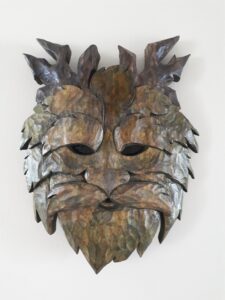
I’ve tried all kinds of neat things. I carve a lot of what’s known as cottonwood bark, which is the thick bark that grows on balsam poplar trees. And it’s very soft and forgiving. It’s really easy for beginners to play with and it has a beautiful grain. It’s known for those little fairy houses, you know, carved out of the bark? That is usually cottonwood bark. And it’s carved, you know, the faces, like the old man with fear and the mustache, wood spirits. One of my favorites is a whale tale that I carved, that I wear as a pendant. And one of my favorite, favorite subjects to carve is Celtic knots and weaves.
So it’s all a form of creating something from…not exactly nothing, but shaping materials into something else, which I think is a, as you might guess from the fact this podcast is called The Worldshapers, is actually a metaphor that I like, that we don’t really create things from nothing, but we take the material that we have inside us and we we shape it into stories and into new creations. So, woodcarving is very much a good metaphor for that.
It’s funny that you would put it that way, Ed, because I actually noticed one day that as an editor and a woodcarver, it’s all about taking things away.
That’s true. I guess that’s true.
I actually am a little jealous of sculptors because they add the clay until it’s right. Whereas a woodcarver, or a stone carver, has to remove material until it’s right.
Well, that’s Michelangelo’s famous thing, it’s attributed to him, that, “How do you carve David? Well, you get a piece of marble and you cut away everything that’s not David.”
Not David. It’s that simple. Very simple. Just like writing. You just put some words on the page. It’s that simple.
You could say that we’re starting with the entire English language and we just take away the parts of it that we don’t need for the specific book. So, it’s all in how you look at it.
Right. Exactly.
Well, then, on the big philosophical side, why do you do this? Why do you tell stories? Or why do you think any of us tell stories? And why, in particular science fiction and fantasy stories?
Oh, we desperately need them. Science fiction and fantasy has given an outlet to talk about things, in all of our history, has given us an outlet to talk about things that weren’t supposed to be talked about. And we could hide underneath the the the wizards and the spaceships, but we could still tell a story about people. And for me, life’s not worth living if there’s no story. So how philosophical is that for you, Ed?
Where do you think that impulse comes from, for human beings to tell stories? Because we’ve been doing it our whole existence.
Well, it’s so important for us to work out what happened and to help us to think it through and decide how we really feel about it after initial reaction, which is, you know, usually either fear or celebration. But I think stories also help us to share information with those that maybe weren’t able to be on the scene for that moment. Right now, in our world as it is, which is a pretty scary one, we’re seeing a huge uprising like, possibly like none before, and I’m really hoping it is, it will be like none before. And that, of course, is around the Black Lives Matter. And, it’s… I’ve spent a lot of time on Facebook and other media sites reading and reading and reading people’s accounts and their firsthand stories of being black and living in America and what it looks like every day and what it feels like every day. And without those stories, how can someone like me in privilege and safety understand why they need to get so upset right now? So we need story. Without story, there’s no understanding.
Well, and I mentioned that this is called The Worldshapers. It’s probably too grand to save that any one story shapes the world in any significant fashion. But do you hope you’re at least shaping your readers in some fashion through your stories?
Oh, that’d be great. Do you know what would be great? Star Trek. A lot of the great ideas that they came up with have now come to pass. Like, the little communication devices seem an awful lot like flip-phones. It would be really great if someday we really can get in a jumpship and fold space and visit other solar systems. And if I inspire the little brain that’s capable of figuring that out, then that would be really something. But I’m not sure that I have that kind of power, I just like to tell a good story.
So you mentioned what you’re working on. Do you have any short fiction in the works or anything on that side of things?
No, I don’t. I haven’t spent a lot of time with short fiction recently, although I am reading Rhonda Parrish’s Earth anthology, the one with the golems and giants? It’s really god.
I think most of are either novelists or short story writers, and although we might do both, there’s one we tend to gravitate to. And certainly, in my case, it’s always been the longer stuff. I don’t write…I finally put out a collection of my short stories and I had to go from my first short story sale in the ’80s up until last year in order to have enough to make a collection. Not a huge short story writer for sure.
Well, how many stories did it come to that?
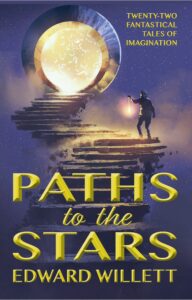
Twenty-two, I think. But there were at least three of them that hadn’t been published before. So they were one that I included that way. So actually published short stories? I wouldn’t think I’m more than about 20 in my entire career.
Well, I know that book exists and it’s on my wish list but I don’t own it yet.
Yes, please, please do buy it. Everybody listening now, please. Paths to the Stars. Shadowpaw Press. Twenty-two short stories by Edward Willett
It looks amazing and I can’t wait to read it.
So, where can people who would like to know more about you find you online?
AdriaLaycraft.com Is a quick way to find me. And I do have a Facebook account that I’m pretty regular on. Other than that, I try not to spend too much time online. Oh, but you can definitely go to the Tyche Books website. Not only do they have amazing authors and amazing books, you can get your favorite Tyche Book on a travel mug and they’re really nice travel mugs, a sweater, a hoodie, a sticker, a poster, a wall hanging. They’ve got it all.
And the YouTube channels you mentioned in the bio?
Oh, yes. You know, it would be really great to have a YouTube channel about writing, but it’s kind of a boring thing to film.
That’s why no, you know, writing competition TV shows. This week, the contestants will type!
Exactly. But Carving the Cottonwood is the first YouTube channel I started, and it was my way of giving back…so many YouTube channels about carving are just people learning and showing what they’re doing. And I was able to learn from them as I was, you know, figuring out how to do this, so filming myself is now my way of giving back to those people and to inspire those who would just like to give it a try. Now, the Girl Gone Vagabond channel, it did get renamed. It’s called Girl Gone to Ground. And it’s going to be now a focus on me finding a little piece of land out here on the West Coast and building a little cabin and a garden and a woodshop. And it should be a lot of fun to see how it works out.
People can find those just with a search on YouTube, I presume.
Yes. You bet.
All right. Well, thanks so much for being on The Worldshapers, Adria. I enjoyed that. I hope you did?
Oh, I did. Thank you so much for inviting me, Ed. It’s such an honor.
And hopefully we’ll see each other in Calgary again one of these days, if nowhere else.
Maybe not this summer, but I’ve really got my hopes set on next summer.
Yeah, me too. Well, thank you very much.
Great. Thanks, Ed!

